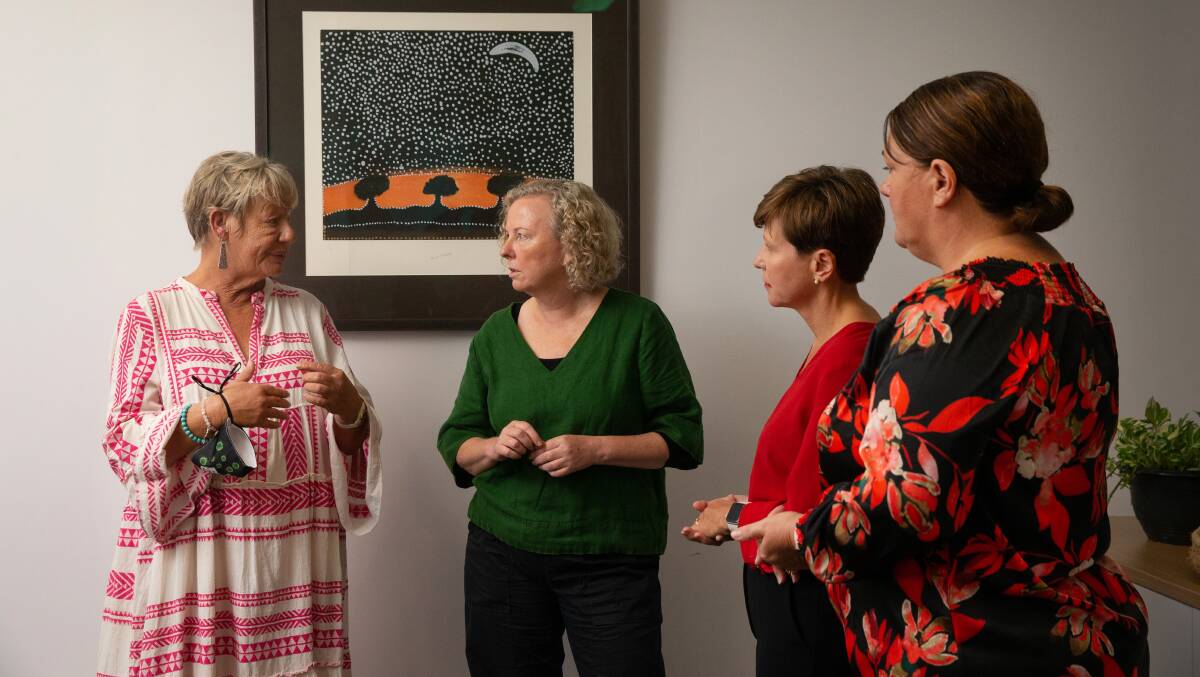
"This could have been prevented, it was predictable and we have been abandoned."
Those were the dire words from Kelly Hansen, CEO of Nova for Women and Children, which has been operating a reduced service since December. The organisation says a lack of resources has left it unable to cope with unprecedented demand, as COVID and a severe housing shortage plunge struggling support organisations into further crisis.
Nova figures provided to The Newcastle Herald show they provided support to 2028 people in 2020/21, 1217 of which were in Newcastle West despite that site being funded to work with just 758.
The number of clients the service is seeing has almost doubled in just four years, from 1050 in 2016/17 to 1475 the next financial year and 1745 in 2018/19.
Ms Hansen and other frontline workers discussed this growing crisis in a roundtable meeting with Newcastle MP Sharon Claydon, Paterson MP Meryl Swanson and Shadow Assistant Minister for the Prevention of Family Violence Jenny McAllister on Thursday.
Labor says it plans to build 20,000 new affordable homes - 4000 of which would be allocated to women leaving violence and older women at risk of homelessness if elected this year. Ms McAllister said the party would also commit funding to improve and increase crisis accommodation, employ 500 more workers across the sector and introduce 10 days paid domestic violence leave.
Ms Swanson said the pandemic had created a situation where people were "effectively locked in and trapped with perpetrators".
"Never before in the history of modern Australia have we seen a situation where violence in our homes has been at the level it's at today," she said.
"On top of this, never before in Australia have we seen less resources given to the people who are going to help those that are trapped than we've seen at the moment. It is a diabolical situation."
Ms Claydon said there was a shortage "of every kind of housing imaginable in our region", leaving survivors with nowhere to go.
"That means we're not keeping women and children safe," she said.
The Herald reported in December that Nova had been forced to reduce its service delivery as demand far outstripped capacity. That reduction is ongoing and being assessed continually, Ms Hansen said.
Calls for help are now assessed on safety and shelter, with urgent requests provided "some level of support". The service's support hubs have cut back opening hours and no waiting list is being kept for crisis accommodation except for urgent needs.
"This is probably one of the worst periods in my career," Ms Hansen said.
"We certainly knew we had major issues and structural barriers prior to the pandemic, I now have a workforce that is exhausted, I'm now trying to mitigate COVID - the risk of getting COVID in the workplace.
"So we now have also reduced service delivery, which doesn't allow us to provide the safety and the shelter that we need to give to women. We don't have the resources anymore."
Ms Hansen said the service was only recently provided with 100 rapid antigen tests, which would last about a week, and said the public health unit used to find accommodation for COVID-positive clients to isolate in - a responsibility that has now fallen on Nova itself.
She said the issue needed urgent action.
"We can look at what physical spaces are available and adapt them to provide support," Ms Hansen said. "We also know that we have been ignored for, I think, 12, maybe 15 years around investment in social housing."
This has had severe consequences on those seeking help, Ms Hansen said.
"The other most scariest thing is trying to keep women and children safe. We face that moral dilemma every day, a couple of times a day trying to work out what we can provide, because the resources that have been put in place have fallen over for us."
Ms McAllister said one support worker said that "on frequent occasions over the last year, she has gone home in tears devastated that she hasn't been able to help a woman who was approached her for assistance".
"From the stories we heard today, from the services that came to the roundtable, it's apparent that very little thinking was put in place about how these services were going to support women who presented with COVID and the services have been left on their own to navigate this immensely challenging situation."







